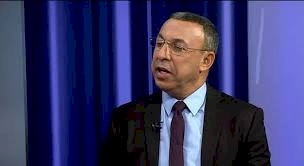
The Palestinian State: The Last Chance
About two years after the genocide in Gaza, and after a shameful silence from the international community, especially from Western countries, the world has begun to move towards stopping the war and finding a lasting solution to the Palestinian-Israeli conflict, which has become unprecedentedly bloody. Perhaps the horrific images of the massacres shared on social media, including scenes of starvation to death that overshadow all else as a major crime incomprehensible to human reason in the twenty-first century, are driving the growing international desire to see an end to this tragedy. It should be emphasized here the role of the Kingdom of Saudi Arabia, particularly Crown Prince Mohammed bin Salman, which is pivotal at both the regional and international levels, as well as the significant role played by French President Emmanuel Macron in pushing the agenda of a two-state solution starting with the cessation of the war on Gaza. This will be clearly reflected in the official recognition of the State of Palestine next month at the United Nations by France and ten other important countries in Europe and beyond, with Britain likely being one of them.
There are indeed two necessary conditions to achieve a political breakthrough on the ground to advance the two-state solution initiative, based on the statement from the Two-State Solution Conference held at the United Nations on the 28th and 29th of last month. These are conditions that address Palestinian interests and are not against them. The first is what is required from "Hamas": ending the issue of the detained Israelis with a deal that ends the war and opens the door to the reconstruction of Gaza, under Palestinian administration, with "Hamas" not being part of it, along with the surrender of "Hamas"'s weapons, so that it no longer remains an armed organization with a militia in Gaza. The second condition is to conduct serious, genuine, and profound reforms in the institutions of the Authority, starting with general parliamentary and presidential elections that are not necessarily simultaneous, but within an internationally acceptable timeline.
As for what is required from "Hamas", it is essential to saving Palestinian lives and stopping the massacre being committed by Israel against them. Without "Hamas"'s response to these conditions, the war will not stop, Gaza will not be rebuilt, and the two parts of the homeland will not be unified, nor will the Palestinian state commence, even if it is fully and comprehensively recognized. There is an opportunity for "Hamas" to demonstrate its flexibility and responsiveness to international demands within the framework of pushing the process of establishing the Palestinian state, rather than as a response to Israeli conditions. The declaration from "Hamas" in response to the statements of U.S. envoy Steve Vitkoff, which stated that "Hamas" has agreed to disarm itself, indicates that the movement will surrender its weapons in the context of establishing a Palestinian state. We are now in a serious process in this direction, and all parties should contribute to it. "Hamas"'s response will undoubtedly be a significant contribution. The Palestinian people and the world will understand that "Hamas" is conceding for the higher interest of the people, not for any other claim, even if Israel considers that a victory for itself. Achieving a real international breakthrough towards the establishment of the State of Palestine would be a bitter political defeat for Israel, especially for the racist fascist government led by Benjamin Netanyahu.
As for reforming the National Authority, it is a Palestinian demand that the people agree upon before it is a international condition, and it should be done within a national option that prioritizes the establishment of Palestinian state institutions, including the electoral process for the Legislative Council and presidential elections, as well as the separation of executive, legislative, and judicial powers, and regaining the trust of the people first in its institutions and the world's trust in our competency for a democratic state that is progressing towards development and advancement in response to our people's aspirations. The message conveyed by President Abu Mazen to President Macron represents an appropriate ground to begin the reform process, where he pledged to conduct general elections within a year. In fact, announcing elections for the National Council by the end of the year lacks justification as long as it is not linked to elections for the Legislative Council, since the membership from within consists mostly of elected Legislative Council members.
These two conditions for achieving a breakthrough in the internationally supported two-state solution process, which is expected to be announced next month, are not optional but are fundamental to the state. It is not a matter of what is preferable but what is obligatory that determines success or failure. If we act, we will have embarked on the path of true political success and victory. If we fail, this might be our last chance to establish a state. The world will not wait for us, but will leap over the issue, ignore it, and let it be forgotten, especially in light of an Israeli policy rapidly accelerating to erase the idea of the Palestinian state and obstruct its establishment, turning it into a solution that is impossible to implement. Time is not on our side. We must seize the opportunity or let it slip away. History will hold us accountable for any squandering of what could be our last chance. Are we up to the responsibility and capable of bearing it, or will we speak of a major catastrophe in the coming days?

Huckabee's Statements Reveal the Falsehood of Trump's Peace and Reinforce Religious Confli...

Licensed Occupation by Law

Whoever Does Not Plant Hope, Plants Departure...

Between "Here is Jerusalem" and "Here is Gaza" ... The Voice of a Nation and the Steadfast...

While some count the boos, Palestinians count their martyrs.. Paradoxes of the internation...

When the Palestinian Issue is Reduced to Gaza Management

Legally Licensed Occupation

